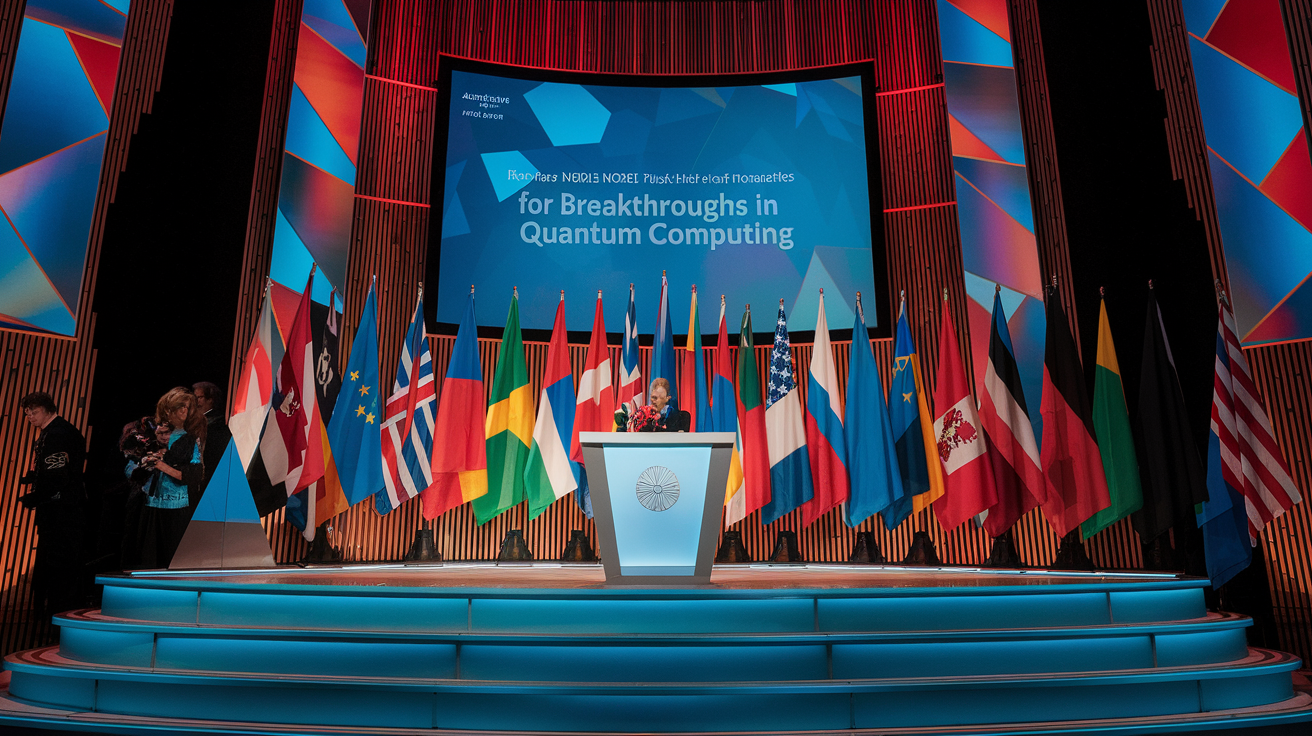John Clarke, Michel Devoret, and John Martinis have been awarded the 2025 Nobel Prize in Physics for their groundbreaking work demonstrating quantum effects within electric circuits.
This prestigious recognition highlights their contributions to the field, showcasing the realization of quantum phenomena at a scale previously deemed unachievable.
The Pioneering Work
In the 1980s, Clarke, Devoret, and Martinis made significant strides in understanding quantum tunneling and energy quantization through their experiments with electric circuits. Their work involved billions of electrons operating on a chip that could be held in one hand, challenging the notion that quantum effects were limited to individual atoms.
During the announcement on October 7 by the Royal Swedish Academy of Sciences, Clarke emphasized, “The basis of quantum computing relies to quite an extent on our discovery.” He, along with Martinis from the University of California, Santa Barbara, and Devoret from Yale University and UC Santa Barbara, will share the prize of 11 million Swedish kronor (over $1.1 million).
Quantum Tunneling Explained
The phenomenon of quantum tunneling is a remarkable aspect of quantum mechanics, allowing a quantum system to traverse barriers that appear insurmountable. A classic analogy is a ball that rolls partway up a hill and somehow appears on the other side.
The researchers utilized a device known as a Josephson junction, which consists of a superconductor—a material that facilitates electricity flow without resistance—sandwiched between two layers of insulator. In a significant 1985 publication in Physical Review Letters, they reported that, when cooled to extremely low temperatures, the circuit could tunnel between two states: one with no voltage across the junction and another with voltage present.
In another paper published the same year, they demonstrated that the circuit absorbed energy in discrete amounts, a phenomenon referred to as quantization.
Impact on Quantum Computing
According to physicist Andreas Wallraff from ETH Zurich, “It’s the foundation for why superconducting qubits work.” Wallraff noted that the trio’s early experiments were pivotal, and their ongoing contributions have continually advanced the field.
Martinis, in particular, played a crucial role in the demonstration that a quantum computer could execute calculations unattainable for classical computers. In 2019, while leading Google’s quantum computing project, his team controversially announced they had achieved this significant milestone.
The race for demonstrating quantum computational superiority has continued since then, prompting ongoing developments in the field.
Potential of Quantum Computers
The power of quantum computers is derived from the principles of quantum mechanics, which diverge from the classical laws governing everyday objects. This unique characteristic endows quantum computers with the potential to accomplish tasks such as breaking conventional encryption methods used to secure online communications.
The award coincides with a yearlong celebration marking the centenary of quantum mechanics, underscoring the lasting impact and relevance of this scientific discipline.
The Nobel Prize awarded to Clarke, Devoret, and Martinis not only acknowledges their individual contributions but also highlights the collaborative nature of scientific progress in the realm of quantum physics. Their work has laid the groundwork for the next generation of quantum computing technologies, promising exciting advancements in the years to come.
